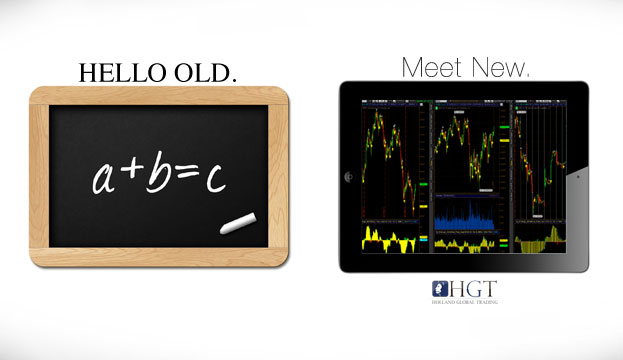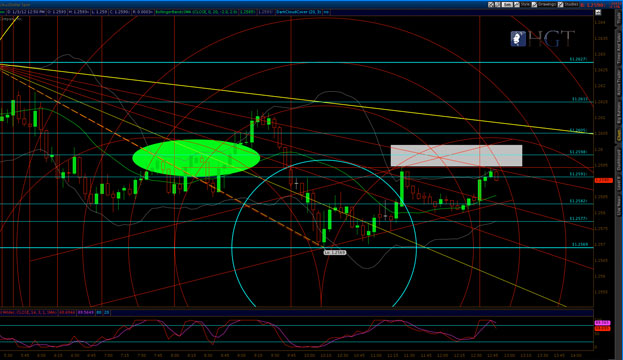
The most recent financial article written for Secret Entourage had to do with what it takes to be a day trader. We cited multiple examples from our experience. To briefly recap those examples, it takes money, risk, education, practice, and most importantly discipline. The latter three are what is needed for a successful attempt at a career that can create wealth. That excitement of creating wealth is what draws many to the path of a day trader. In this article, we will expand on why we ultimately have chosen trading as a career and how we deal with the most stressful and difficult aspect of trading which is emotion.
Recently we watched the 2011 film titled Margin Call, in the hopes that it would have some trading material and it ended up being more disappointing than the 2nd installment of 1987’s Wall Street. The only trading was toward the end of the film when the pseudo Lehman Brother’s firm sold off nearly all of their MBS’s (mortgage backed securities) and began the market crash of 2008. The floor traders in the film were to receive approximately a $3 million bonus if they achieved a 90% or more goal of the fire-sale of the worthless securities that they had overleveraged themselves on. It appeared they did. This type of institutional trading is done on a large scale by firms on Wall Street and in other major cities around the world. It is not the type of trading however that got us interested in trading. Yes it can be great money, but it is limited and can certainly run into ethical and moral consequences. For us, there is not enough money that could justify this type of corruption and all because a few people at the top made a fortune.
The reason we trade is for the pleasure of steady profits for ourselves and clients. Within that pleasure is a sense of fulfillment that comes from the understanding of our methodology, strongly rooted in technical data and a disciplined approach to the market. The turning point for me was studying the Turtle Traders Experiment. This was an experiment done in the 1980’s as a bet between two professional commodities traders. The bet was whether ordinary people without a professional trading background could become successful traders by following a mechanical approach to the market. This means that when certain rules were met on a commodity that the trader would execute a trade. One of the two traders in the bet stated that you had to be born a trader and his friend said that they just had to be taught a disciplined method that when certain conditions were met that the strategy was executed and that over time they would be successful and profitable. You can expect that the results were in favor of the trader who bet he could teach anyone to trade successfully. The most successful of the Turtle traders named Curtis Faith wrote a book titled “Way of the Turtle” and is a must read for those starting out in trading. For many of the traders in the experiment who had responded to an advertisement in the Wall Street Journal, it changed their life from an ordinary career to extraordinary wealth, becoming millionaires in the 1980’s and continuing to be profitable.
It was this story that brought trading to a new level for us. The fact that we knew that finding a system of rules or conditions was the way to be profitable over time was exciting to say the least, but finding and creating a system that worked for us was the challenging part. This is not something done overnight or possibly even in a year’s time. The good news was that we could test our strategies using historical price data at a fast speed. We began testing night and day between multiple strategies and over many years to see what the most profitable set of rules was. By the time roughly three years had passed, a system with a checklist of a total of 120 rules/filters had been created. We had been trading over this time of course but the research never stopped and will never fully stop. Anyone that thinks they have mastered the markets is in for a lesson now and then.
One of the downfalls in testing back data is that you can optimize your strategy for a certain period of time making your results look really amazing, and unfortunately those types of results have been marketed as amazing trading systems that end up eventually not working. Just because something worked for a certain time period, definitely does not mean it will continue to be profitable or that it was profitable prior to the time it was tested. There is no perfect system for any market either. The best traders understand that there are times when we need to adapt to changes in an evolving market. The biggest evolution in the markets we have seen has been just in the last decade with the high frequency instant execution methods being used both institutionally and privately. The emergence of electronic trading has left many old school traders in the dust and the younger generation of traders are benefiting from their technological expertise. We are of the latter and find the electronic trading not only exciting but convenient and more profitable, especially in the 24 hour currency market. As far as buying or selling, we retain full discretion on the trend whether it is intraday or intra-month, but electronic trading offers precision and opportunity not possible with fully manual entries.
In conclusion, it is important to understand a few things about trading the markets. They can be traded by anyone that puts the time into finding a system that consistently works and that he or she will commit to the discipline necessary to trading the system. The key to combating emotion is also having a system that you stick to. It will not win every time and you enter the market knowing that. However if you have a system winning the vast majority of the time, your confidence should not keep you out of the market and you should be okay with losing some trades. If you are not happy with your losses, then trade a smaller value until you are more comfortable with losses. We enter the market expecting to win 70% of the time as that is what our stats have shown us we do. We are expecting to lose 30% of the time and are satisfied with that as we know it works and wins more than it loses and that is the key to success.
About Holland Global Trading: Holland Global Trading is a registered commodity-trading advisor (CTA) with a client base that includes a unique blend of both seasoned Forex veterans and people who are completely new to Forex. Our trading team is dedicated to providing research and technical excellence.
As with any investments we MUST state: Disclaimers and Disclosures – Forex trading carries a high level of risk and may not be suitable for all investors. Trading on leverage magnifies the potential for profit and loss. Before deciding to trade forex, you should carefully consider your financial objectives, level of experience and risk appetite. Any opinions, news, research, analyses, prices or other information contained herein is intended as general information about the subject matter covered and is provided with the understanding that this website is not rendering investment, legal, or tax advice. You should consult with appropriate counsel or other advisors on all investment, legal, or tax matters. The information and opinions found on this website are for general information use only and are not intended as an offer or solicitation with respect to the purchase of sale of any currency. All opinions and information contained in this website are subject to change without notice. The reports within the website have been prepared without regard to the specific investment objectives, financial situation and needs of any particular recipient. While the information contained herein was obtained from sources believed to be reliable, author does not guarantee its accuracy or completeness, nor does author assume any liability for any direct, indirect or consequential loss that may result from the reliance by any person upon any such information or opinions.
